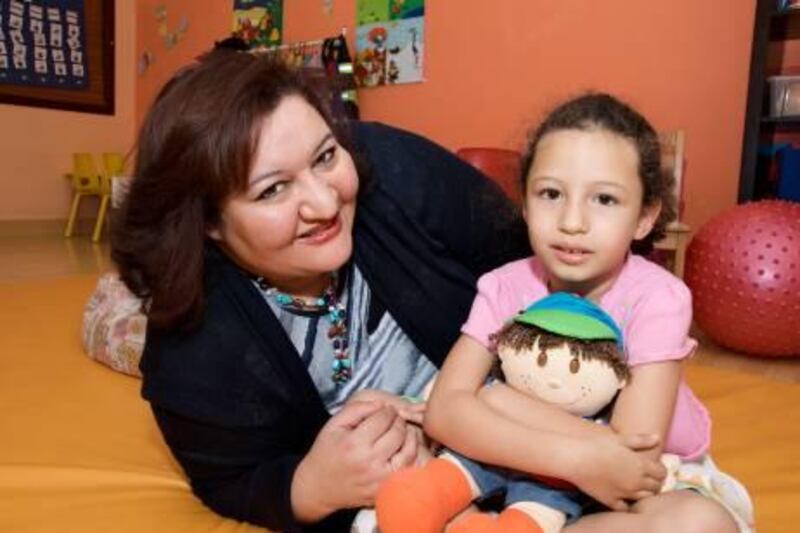DUBAI // Psychological assessments in the early years of a child's life could help improve the identification and treatment of children with learning and developmental difficulties, particularly those with autism, according to experts.
"It used to be that parents would go from one physician to another and not know what their options were," said Jason Garner, regional director of the Centre for Autism and Related Disorders (Card) in the US.
"They would be so appreciative when they came to see us. They knew that they were finally coming in for treatment as opposed to being given a label and told to go somewhere else."
The Child Early Intervention Medical Centre in Dubai Healthcare City has been working for the past three years to provide early-intervention services for families of children with autism spectrum disorders.
The centre's practices are streamlined with Card, which has more than 20 years of experience treating autism.
Doctors, parents and health experts are seeking to raise awareness of autism-related disorders during Autism Awareness Month.
"When I started working 17 years ago, there was one in 10,000 children with autism. Now it is one in 146 children with autism," said Mr Garner. "Ideally, the earlier the intervention the better. That is because we have less of a gap between the chronological age and the mental age."
After assessments are carried out, an individual programme can be drawn up for each child, based on their cognitive skills, strengths and weaknesses. Therapy can then address the difficulties, whether they concern language and communication, social skills or behaviour.
The early intervention centre uses Applied Behavioural Analysis (ABA) therapy to teach practical skills to children with autism so they can become more independent. Many children who receive ABA training will learn to behave appropriately and, after intensive therapy, some may no longer be diagnosed with autism.
Mr Garner said most children he saw fell into one of two categories: excessive behaviour and communication problems.
"Excessive behaviours can be tantrums, banging their head, biting their hand … if they do not have the communication skills to let you know what they want, they revert to these things to get their point met," he said.
ABA therapy is most effective when carried out for 20 to 40 hours a week, depending on the needs of the child, but a minimum of 10 hours is required. The children vary in age from 2 to 15 years.
"The programme is designed to be from three to four years with the thinking that if we get them early and often, then our chance of bridging that gap is easier," said Mr Garner.
The centre also invests heavily in training staff in behavioural therapy to ensure that the most effective services are provided.
"The centre, which started out with eight children and 10 therapists in 2008, now has over 60 children and 40 behavioural therapists, in addition to speech, occupational therapists, psychologists and the administration team," said Dr Hibah Shata, the managing director and co-founder of the centre.
[ balqabbani@thenational.ae ]





